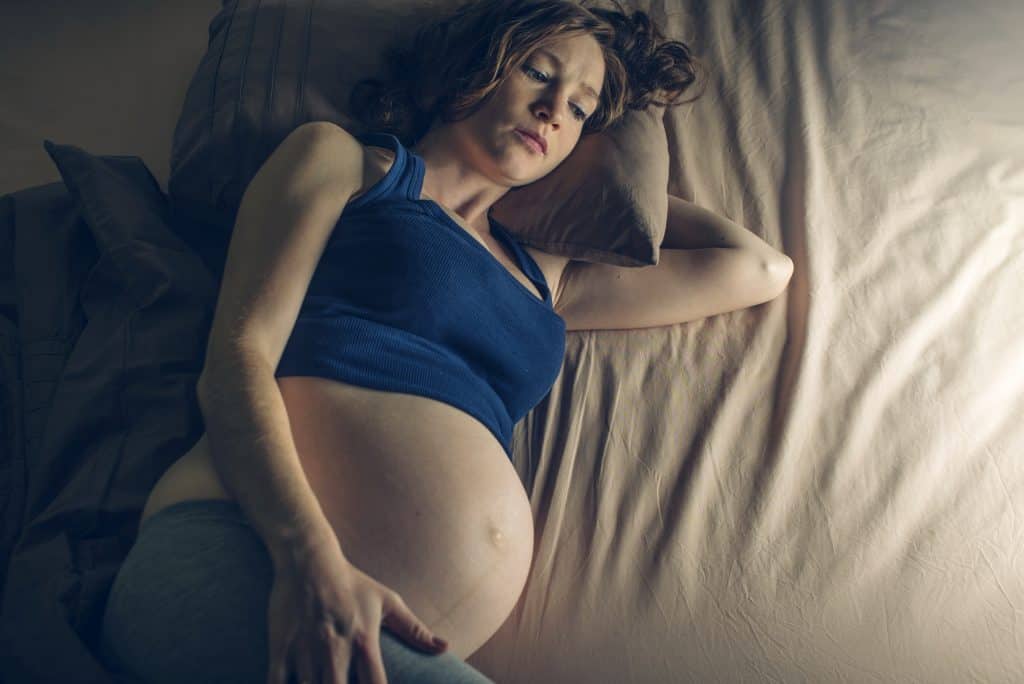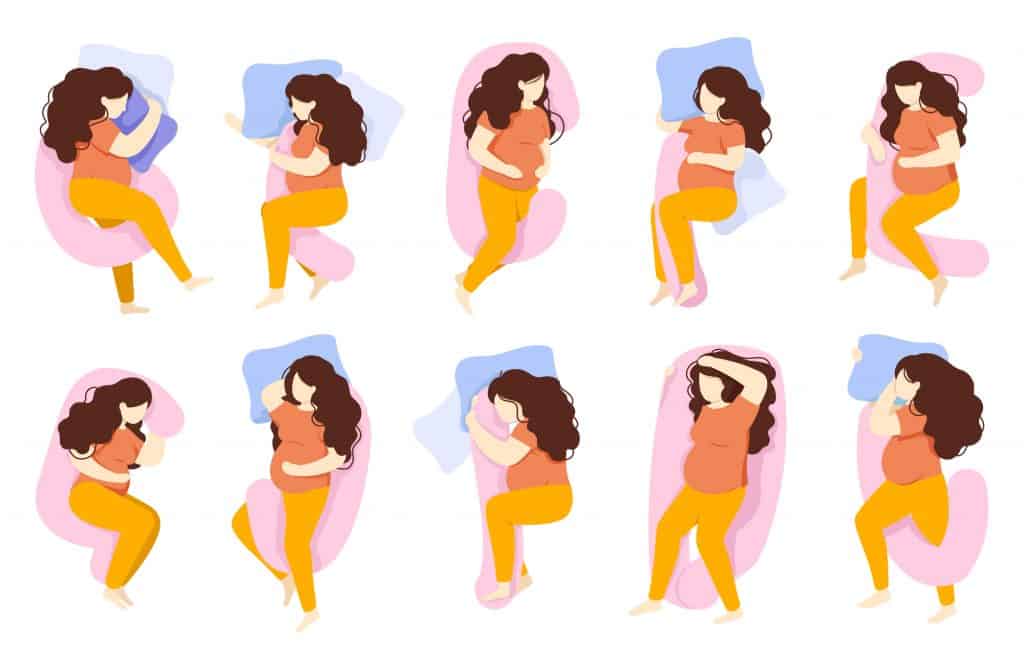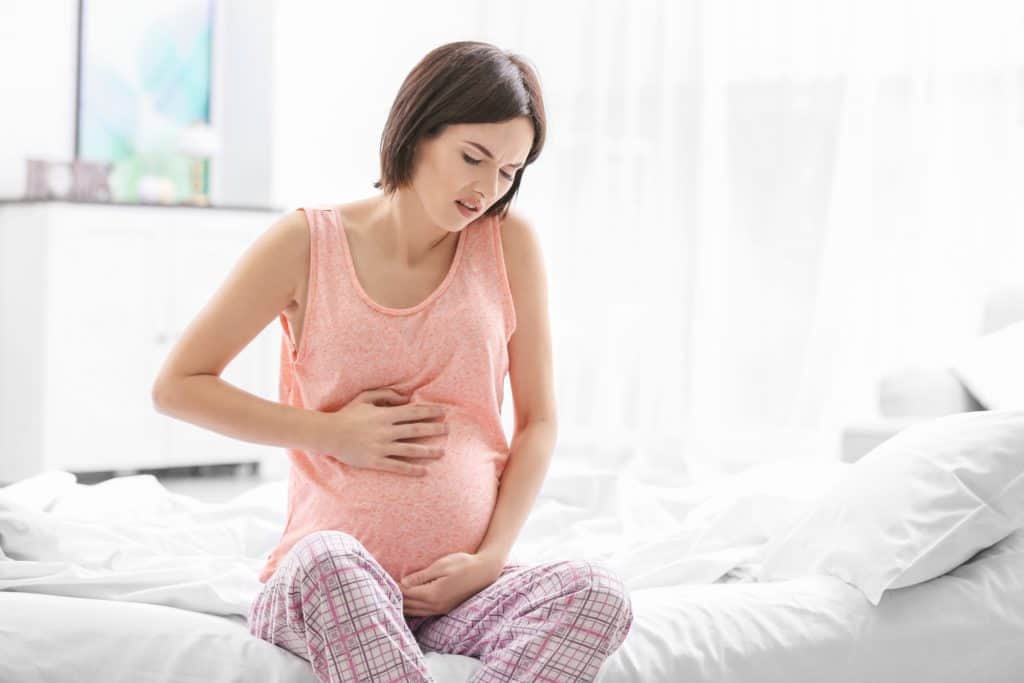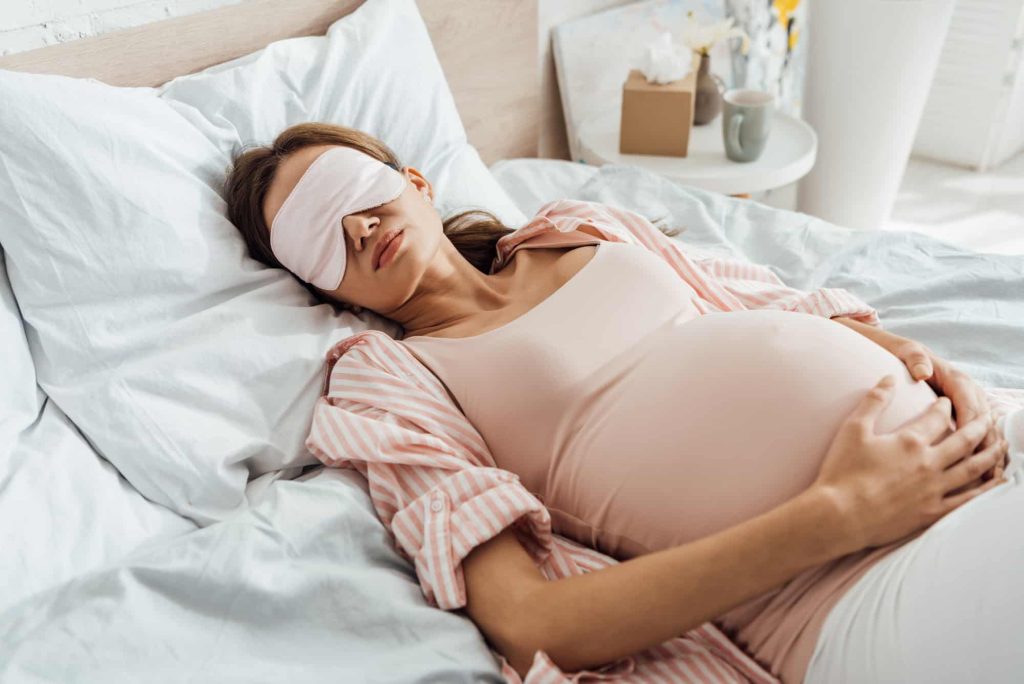Is pregnancy keeping you awake at night?
It doesn’t have to. Osteopathy and many other things can help.
There are many reasons why you might be having trouble sleeping whilst being pregnant.
Not least the anxiety that comes with becoming a new mother and wondering how you will cope with your new responsibilities – or get the baby out in the first place.
But the most common reason for lack of sleep during pregnancy is the physical aches and pains accompanying carrying a tiny human in your belly.
Experiencing abdominal and pelvic pain during pregnancy is generally nothing to worry about as it’s part of the process as your body changes to accommodate your growing baby.
These pains can regularly stop you from getting a good night’s sleep, which isn’t great for you or your baby.
But what can you do about it?
More Blogs From Focus Osteopathy:
What Pelvic Floor Exercises Should I Actually Be Doing?
How Can I Relieve My Pelvic Pain During Pregnancy?
Pregnancy: Dealing With Back Pain When Sleeping
What Causes Pain (And Keeps You Awake) During Pregnancy?

Certain kinds of pain during pregnancy are expected, and the following types of pain pose no risk to you or your baby, even though they keep you awake at night:
Round Ligament Pain
Mostly, the symptoms include a sharp, intense pain while changing position when sleeping or lying down.
However, round ligament pain may also appear dull and lingering.
This kind of pain occurs due to the two large ligaments that extend from the uterus to the groin, which get stretched due to the growth of the uterus leading to discomfort.
In most cases, round ligament pain appears in the second trimester and is considered benign.
Osteopathy can help with this and other types of pain that can become bothersome during pregnancy.
Gas And Constipation
As your progesterone levels increase during pregnancy, this can lead to developing more digestive issues.
As the hormone levels rise, the GI tract’s function can be affected, and the digestion of food slows down. It can make you feel like food is lying in your stomach, making it difficult to relax and get to sleep.
To prevent digestive problems during pregnancy and to get a better night’s sleep, you should aim to consume more food that is rich in fibre.
In addition, increase your water intake, and ensure you’re getting enough gentle exercise.
Braxton Hicks Contractions
Also known as “practice contractions”, these pains are more of a discomfort than anything serious. But they can contribute to sleepless nights in your final trimester.
The symptoms are the contraction of the stomach muscles that makes the stomach feel hard and tight. But it is essential to know the difference between actual contractions and Braxton Hicks.
True contractions last longer, happen closer together and cause more severe pain. They can also cause you to feel breathless, making it difficult to continue any activity.
Generally, if you can continue doing any activity during the contraction, it is likely to be Braxton hicks. Since this type of contraction is more likely to occur because of dehydration.
Staying well hydrated can help to control the Braxton Hicks contractions and help you get a night’s sleep.
How To Sleep Soundly During Pregnancy

Sometimes, there is no real reason for not being able to sleep during pregnancy. Other than it’s just challenging to get comfortable when you have a big baby bump to contend with.
But as we’ve already mentioned, sleep is vital for you and your growing baby.
So, what can you do to ensure you get a good night’s sleep, and what is the best position to sleep when pregnant?
Right?
Left?
Side?
Back?
There are so many things to consider when pregnant that it can become overwhelming. Sometimes, that alone is enough to keep you awake at night.
But there are some things to consider when deciding how to sleep when pregnant.
For example, most doctors agree that sleeping on your side is the best position to sleep when pregnant.
Why? Because it is likely to limit blood flow to the uterus and, therefore, the safest position for your baby.
It’s highly unlikely, but previous studies have suggested that sleeping on your back when pregnant can negatively affect your pregnancy, particularly in the latter stages.
But should you sleep on your left or right side?
Again, small studies suggest that the best position to sleep when pregnant is to lie on your side and choose your left side.
There are a couple of reasons for this preference for the left side. Most notably, the large vein that carries blood and oxygen to your baby – the IVC (inferior vena cava) – is on your right side. So it stands to reason that if you sleep on your right side, you could potentially reduce the blood flow inside this all-important vein.
Sleeping on your left also reduces any unnecessary pressure on your liver.
However, all the risks associated with sleeping on your right side are small (some studies suggest zero risk for left or right-sided sleeping).
It comes down to personal preference and the position you feel most comfortable. There are risks associated with lack of sleep during pregnancy, so you must weigh the pros and cons.
However, if you slept on your back or front before pregnancy and found side sleeping uncomfortable, there are some things you can do to make it more comfortable, such as putting a pillow between your knees or investing in a pregnancy pillow – a long pillow that can be used to support your bump and to put between your legs to offer additional support and comfort.
Important Information

Apart from those mentioned above, there are many other reasons to experience sleepless nights and discomfort during pregnancy that are not serious.
These include sensitivity to certain foods, stomach infections, and a growing uterus. All can cause abdominal pain of some kind but are not serious.
But some types of abdominal and pelvic pain can be serious during pregnancy.
While most women that have pain during pregnancy go on to have healthy pregnancies.
There are situations where abdominal pain that wakes you up in the middle of the night requires medical attention:
Miscarriage
Sadly, miscarriage is among the most common reasons for termination of pregnancy, with around 20% of pregnancies ending in miscarriages.
Also medically termed as spontaneous abortion, a miscarriage is most likely to happen during the first 13 weeks of getting pregnant.
Some of the symptoms of this condition are regular contractions ranging from 5-20 minutes.
In addition, bleeding accompanied with or without cramps, back pain ranging from mild to severe, discharge of clots or tissue material from the vagina and a sudden lack of other pregnancy signs.
Ectopic Pregnancy
This is a less common condition but does happen in 1 of 50 pregnancies when the egg implants outside the uterus.
In most situations, it implants in the fallopian tube. Ectopic pregnancies cannot be continued and need immediate medical care.
When women experience an ectopic pregnancy, they feel intense pain accompanied by bleeding anywhere in the 6 to 10th week of pregnancy.
Women at high risk of ectopic pregnancy have endometriosis, have an IUD when conceived, have had an earlier ectopic pregnancy or have undergone tubal ligation.
Urinary Tract Infection
One of the more common causes that pose a serious health risk during pregnancy is a UTI (urinary tract infection).
While it is easily treatable, it can cause pregnancy complications if neglected.
The symptoms include a burning sensation when urinating and discomfort and pain in the lower abdomen area, which is likely to keep you awake at night.
Preeclampsia
When a pregnant woman experiences preeclampsia, there is a rise in blood pressure and an increase in protein in the urine around the 20th week of pregnancy.
Some of the symptoms will include pain in the abdomen, below the right ribs, and other signs indicative of preeclampsia.
These can consist of a build-up of excess pressure in the abdominal region, vomiting and nausea etc. can occur as well. This condition requires urgent medical attention.
Placental Abruption
Another dangerous medical condition is placental abruption, resulting in the placenta separating from the uterus before the baby’s birth.
The main symptom of this condition is that the stomach feels very hard to the touch, is painful and remains like this for a long time.
Additional symptoms are premature water breakage or discharge of bloody fluid with pain and discomfort in the abdomen and back pain.
If you have any of the following symptoms along with pain in the abdomen and discomfort, you should seek medical attention and get checked over:
- Intense pain that persists for an extended period
- Developing fever accompanied by chills
- Unusual vaginal discharge
- Feeling light-headed and dizzy
- Nausea and vomiting
- Experiencing pain while urinating
- Spotting or bleeding of any type
Can Physical Therapy Help?

Yes, physical therapy is one of the most effective ways to ease your pain during pregnancy.
Here at Focus Osteopathy we specialise in supporting soon to be mums in every step of their pregnancy.
We can help you feel better with a simple, natural recovery plan that gets to the core of what is causing your pain.
Our specialist team are experienced in treating pregnancy-related musculoskeletal pain.
You can book a FREE Discovery Session with us where we will be able to find the cause of your pain and give you advice on how to have a better nights sleep.
Osteopathy treatment can help with your pain, which will help you sleep better, move better and feel better.





